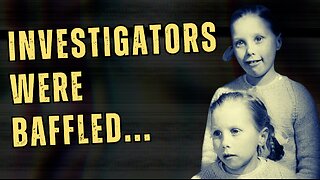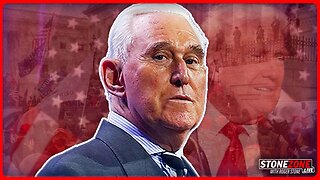Premium Only Content

New Hampshire Democrat Tommy Hoyt Tells Parents Supporting the Parents Bill of Rights to 'Shut Up
Tommy Hoyt is a state representative for the Democratic Party in Campton, known for his strong and often controversial opinions on education and parental involvement. His recent comments regarding the Parents Bill of Rights have drawn both attention and criticism.
Hoyt's unfiltered response to a voter's email, where he bluntly told supporters of the bill to "shut up," reflects his direct and sometimes confrontational approach to public discourse. While he later admitted that his choice of words could have been better, he stood by his belief that parents should defer to teachers and professionals when it comes to education.
His stance aligns closely with teachers unions and progressive activists, who vehemently opposed the Parents Bill of Rights. The defeat of the bill in the House by a narrow margin indicates the influence of these groups and their potential impact on Democratic representatives who support parental rights.
Hoyt's argument centers around the idea that parents pose a unique danger to their children and should not be provided certain information about their behavior at school, particularly related to sex and gender. This perspective puts him at odds with supporters of the bill who emphasize the importance of parental involvement and oversight, especially in cases where educators have been prosecuted for sexual misconduct.
Hoyt's comparison of teachers to Catholic priests regarding potential abuses of power sparked further controversy. His assertion that individuals in positions of authority are prone to such misconduct may further strain his relationship with those who advocate for transparency and accountability in the education system.
It is worth noting that Tommy Hoyt's statements and opinions, as described here, represent a particular viewpoint within the broader discourse on parental rights and education. The controversy surrounding his comments underscores the ongoing debate about the role of parents, teachers, and the government in shaping education policies and ensuring the well-being of children.
-
 12:38
12:38
NC Dirt Hunter
1 day agoIncredible Civil War relic sticking right out of the ground! Metal Detecting an old plantation.
1.86K2 -
 44:36
44:36
TheTapeLibrary
16 hours ago $1.91 earnedThe DARK Truth About the Pollock Family Tragedy
9.2K11 -
 1:11:01
1:11:01
The Charlie Kirk Show
9 hours agoTHOUGHTCRIME Ep. 70 — Seatgate? Best Executive Orders? Panda Express?
111K14 -
 2:04:23
2:04:23
Kim Iversen
13 hours agoINCREDIBLE: Trump RELEASES JFK Files & BANS Central Bank Digital Currency
164K191 -
 1:12:22
1:12:22
Side Scrollers Podcast
16 hours agoThe Real Game Awards: Official Live Stream
105K17 -
 59:48
59:48
The StoneZONE with Roger Stone
9 hours agoJanuary 6 Victim Jeremy Brown Still in Jail Despite Trump Pardon | The StoneZONE w/ Roger Stone
64.9K13 -
 1:45:44
1:45:44
megimu32
10 hours agoON THE SUBJECT: Make 90s Movies Great Again
51.9K10 -
 59:46
59:46
Man in America
17 hours agoAI mRNA Vaccines, Turbo Cancer & Blood Clots... What Could Go Wrong?! w/ Tom Haviland
59.4K49 -
 1:09:15
1:09:15
Precision Rifle Network
1 day agoS4E3 Guns & Grub - Trump a new era for gun rights?
92.1K9 -
 1:05:31
1:05:31
Glenn Greenwald
12 hours agoSection 702 Warrantless Surveillance Ruled Unconstitutional: Press Freedom Advocate Seth Stern Explains; The Rise of Unions & the Impact of Trump's Populism with Author Eric Blanc | SYSTEM UPDATE #395
122K101